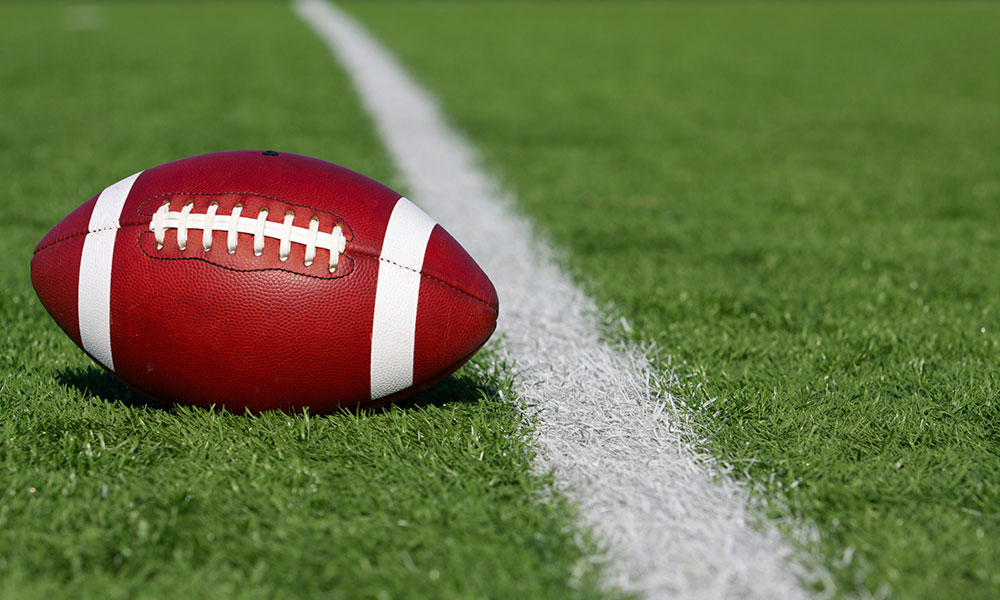
College Athletes Score Big in Unionization Case
In a decision that could shake college sports to its core, the National Labor Relations Board sided with Northwestern University football players looking to form a union. The NCAA is pushing back—hard.
Big-name university sports could be at a major turning point—one that eventually could lead to college players getting paid.
That possibility is a result of the decision by National Labor Relations Board (NLRB) Regional Director Peter S. Ohr, who ruled Wednesday that Northwestern University scholarship athletes are employees of the school and therefore should be allowed to unionize. The school’s football players began the unionization push earlier this year, becoming the first to join the College Athletes Players Association (CAPA).
The ruling does not affect all universities, but could have a direct effect on private schools, which operate under different rules than public universities.
In a 24-page decision [PDF], Ohr determined that the student-athletes spent far more time on the field than in class and often were required to make academics a secondary concern to traveling to games, taking part in practices, and attending team meetings. (The decision cites the case of quarterback Kain Colter, who says he switched his major after he found he could not manage both his demanding pre-med classes and his football schedule.)
“While the football coaches, and the employer [the university] as a whole, appear to value the players’ academic education, it is clear that the players are controlled to such a degree that it does impact their academic pursuits to a certain extent,” Ohr wrote. “This appears to be especially true for the scholarships players as they are sometimes unable to take courses in a certain academic quarters due to conflicts with scheduled practices.”
Ohr also pointed to Northwestern’s substantial revenue from football in arguing that the relationship between scholarship players and the school “is an economic one that involves the transfer of great sums of money to the players in the form of scholarships.”
A Big Victory
Ohr’s decision gives CAPA, a brand-new group launched at the same time that the Northwestern players announced plans to unionize, momentum to push further.
“This ruling is a major step toward justice,” CAPA President Ramogi Huma, a former UCLA football player, said in a statement. “The courageous, enlightened young men on the Northwestern football team are demonstrating what can be accomplished when college athletes are unified. Their actions will improve the lives of the current and future generations of college athletes. This decision clears the way for other FBS [Football Bowl Subdivision] football and Division 1 basketball players at private schools within the NCAA to organize.”
Colter, who has been the public face of CAPA’s unionization efforts, said the union would enhance player safety for years to come.
“Minimizing the risk of concussions should be a priority, and shielding current and former players from sports-related medical bills should be guaranteed,” Colter said in a statement. “Players will gain a number of important protections once this union is in place.”
The NCAA’s Take
In a statement after the ruling, the NCAA disputed Ohr’s finding that student-athletes are employees of the university.
“While improvements need to be made, we do not need to completely throw away a system that has helped literally millions of students over the past decade alone attend college,” NCAA Chief Legal Officer Donald Remy wrote. “We want student-athletes—99 percent of whom will never make it to the professional leagues—focused on what matters most—finding success in the classroom, on the field, and in life.”
Potential Next Steps
Northwestern University plans to appeal the ruling to a five-member board in Washington, DC, a process that could take months to complete.
The school may find such an appeal challenging. ESPN legal analyst Lester Munson noted that Ohr made a compelling argument that a 2004 NLRB decision finding that Brown University graduate assistants were students and not employees did not apply to the players’ situation. In that case, the NLRB concluded that “the overall relationship between the graduate assistants and their university was primarily an educational one, rather than economic one.”
Northwestern President Emeritus Henry Bienen, meanwhile, has hinted that if it loses the case, it may consider dropping its athletic programs entirely, despite their status as moneymakers, in an effort to protect the university’s academic integrity.
“If we got into collective bargaining situations, I would not take for granted that the Northwesterns of the world would continue to play Division 1 sports,” Bienen said at a conference last month, according to CNN.
(iStock/Thinkstock)






Comments